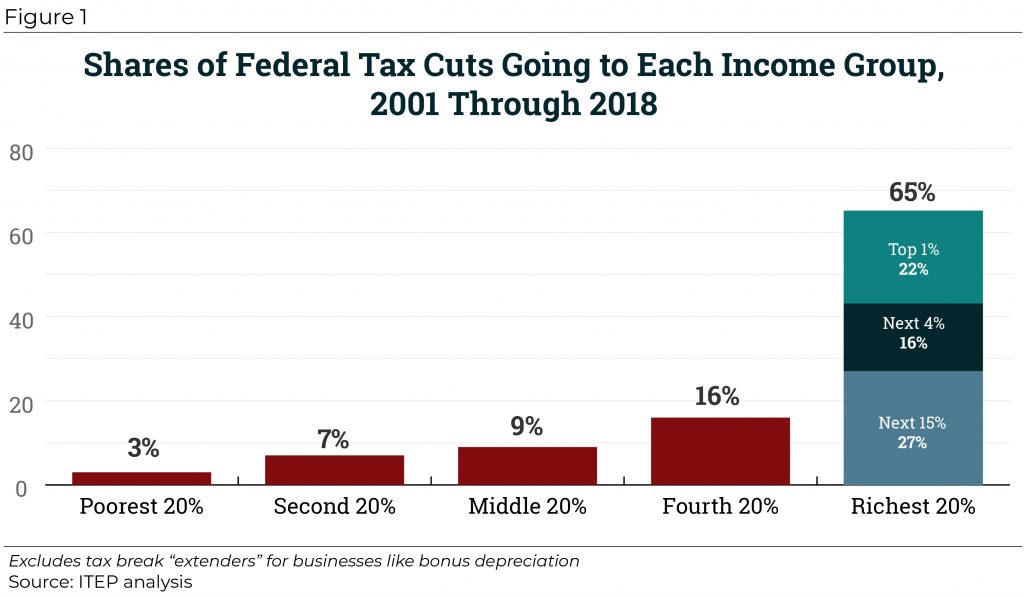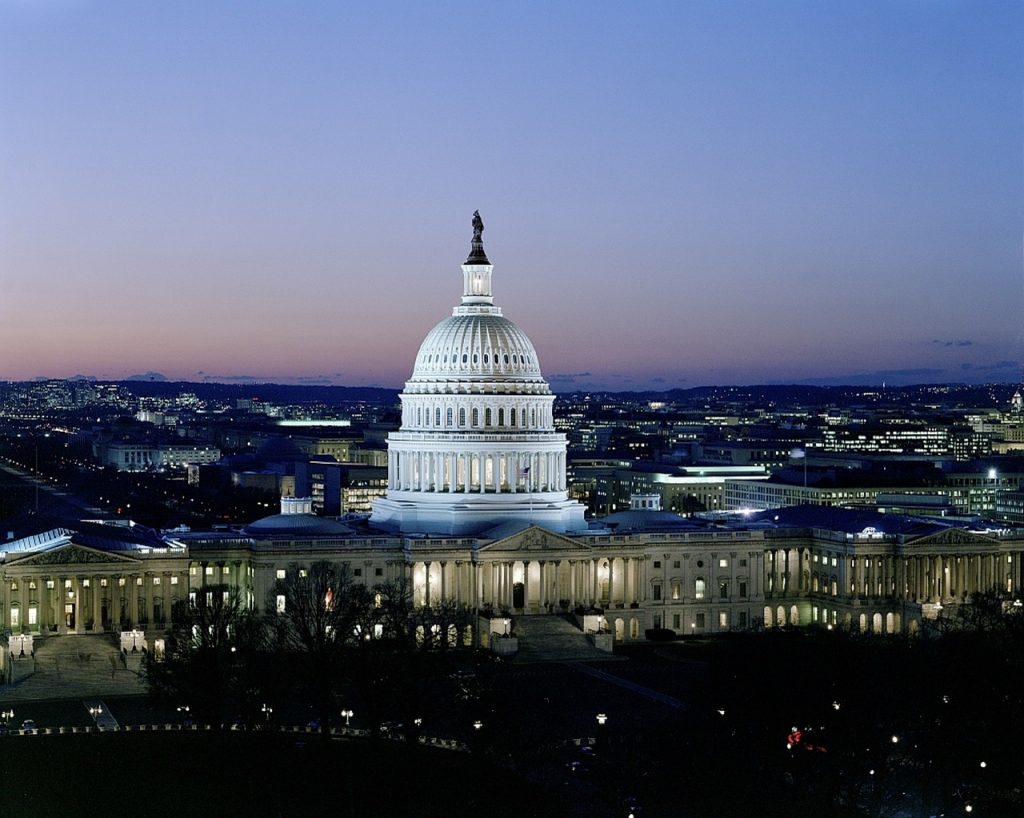Presidential candidate and former Vice President Joe Biden frequently touts his ability to work with Republicans on taxes and other issues. In a Democratic presidential debate in June, Biden cited the tax deal that he negotiated with Senate Republican leader Mitch McConnell at the end of 2012 and start of 2013.
“I got Mitch McConnell to raise taxes $600 billion by raising the top rate,” Biden said.
But other candidates have criticized Biden’s approach. To take just one example, Senator Michael Bennet slammed the 2013 tax law that Biden negotiated with McConnell, saying “that deal extended almost all those Bush tax cuts permanently.”
The fiscal cliff agreement is part of a long pattern of lawmakers from both parties cutting taxes and keeping them low, one that has spanned 20 years.
The 2013 deal marks the last time Biden was involved in tax policy in a big way. I remember it vividly. Why? Because I had to work New Year’s Eve and New Year’s Day in 2013 to tell reporters what the agreement would do.
The Bush tax cuts were scheduled by law to expire at the end of 2012. President Obama and some lawmakers believed that allowing that to happen might hurt the economy, a scenario some people described as going off the “fiscal cliff.” So, they faced what they believed to be a deadline to extend at least some tax cuts by the start of 2013.
I can put aside my still-lingering disappointment over how I spent that holiday, but I cannot put aside the problems with the policy that resulted.
On New Year’s Day, I published a report for Citizens for Tax Justice titled “The Biden-McConnell Tax Deal Would Save Less than Half as Much Revenue as President Obama’s Original Tax Proposal.”
Two days later I published two additional reports:
- Poorest Three-Fifths of Americans Get Just 18% of the Tax Cuts in the Fiscal Cliff Deal
- Revenue Impacts of the Fiscal Cliff Deal
This is not unique to Biden. The fiscal cliff agreement is part of a long pattern of lawmakers from both parties cutting taxes and keeping them low, one that has spanned 20 years. (In another report, we conclude that from 2001 through 2018, the Bush, Obama and Trump administrations cut tax revenue by more than $5 trillion, with nearly two-thirds of that flowing to the richest fifth of Americans.)
How the Fiscal Cliff Deal Went Down
So, here’s what happened at the end of 2012. President Obama and Congress had already extended the Bush tax cuts once before. They had been scheduled to expire at the end of 2010 but Biden negotiated an earlier deal to extend them for two years, through 2012. At the end of 2012, some observers called the looming expiration of tax cuts a “fiscal cliff” and claimed dire economic consequences would materialize if they were not extended. This made very little sense, even back then. Expiration of the Bush tax cuts would have returned the nation to the tax laws in effect at the end of the Clinton administration when the economy was booming.
In any event, opponents of the tax cuts did have leverage because if Congress did nothing at all, the tax cuts would simply disappear. But the deal Biden negotiated made permanent most of the Bush tax cuts at a cost of more than $3 trillion over 10 years. The only way Biden and the Obama administration could claim that it raised $600 billion from the rich was to compare it to the Republican proposal to extend all the Bush tax cuts.
This is not necessarily Biden’s fault. Obama’s initial proposal to address the fiscal cliff would have extended most of the Bush tax cuts without coming close to replacing the revenue. But, as I explained in my New Year’s Day 2013 report that no one aside from a handful of reporters read, the final deal between Biden and McConnell salvaged less than half as much revenue as Obama’s initial proposal.
Obama initially pledged to keep the Bush tax cuts for income up to $250,000 for married couples and up to $200,000 for singles. The final Biden-McConnell deal basically set that threshold at $450,000 for married couples and $400,000 for singles, meaning the low, Bush-era tax rates were extended for incomes at levels much higher than what Obama had proposed.
Americans have long wanted more progressive tax policies and have told pollsters for years that they want wealthy individuals and big corporations to pay more, not less, in taxes. Devoting years of debate to haggling over whether tax cuts should be continued for income up to $450,000, $300,000 or $250,000 has not provided a real response to that demand from the public. The only way forward is for lawmakers and the next president to take a dramatically different approach to tax policy.





